We are going to die, and that makes us the lucky ones. Most people are never going to die because they are never going to be born. The potential people who could have been here in my place but who will in fact never see the light of day outnumber the sand grains of Arabia. Certainly those unborn ghosts include greater poets than Keats, scientists greater than Newton. We know this because the set of possible people allowed by our DNA so massively exceeds the set of actual people. In the teeth of these stupefying odds it is you and I, in our ordinariness, that are here.
We live on a planet that is all but perfect for our kind of life: not too warm and not too cold, basking in kindly sunshine, softly watered; a gently spinning, green and gold harvest festival of a planet. Yes, and alas, there are deserts and slums; there is starvation and racking misery to be found. But take a look at the competition. Compared with most planets this is paradise, and parts of earth are still paradise by any standards. What are the odds that a planet picked at random would have these complaisant properties? Even the most optimistic calculation would put it at less than one in a million.
Imagine a spaceship full of sleeping explorers, deep-frozen would-be colonists of some distant world. Perhaps the ship is on a forlorn missionto save the species before an unstoppable comet, like the one that killed the dinosaurs, hits the home planet. The voyagers go into the deep-freeze soberly reckoning the odds against their spaceship's ever chancing upon a planet friendly to life. If one in a million planets is suitable at best, and it takes centuries to travel from each star to the next, the spaceship is pathetically unlikely to find a tolerable, let alone safe, haven for its sleeping cargo.
But imagine that the ship's robot pilot turns out to be unthinkably lucky. After millions of years the ship does find a planet capable of sustaining life: a planet of equable temperature, bathed in warm starshine, refreshed by oxygen and water. The passengers, Rip van Winkles, wake stumbling into the light. After a million years of sleep, here is a whole new fertile globe, a lush planet of warm pastures, sparkling streams and waterfalls, a world bountiful with creatures, darting through alien green felicity. Our travellers walk entranced, stupef ied, unable to believe their unaccustomed senses or their luck. the story asks for too much luck; it would never happen.
And yet, isn't that what has happened to each one of us? We have woken after hundreds of millions of years asleep, defying astronomical odds. Admittedly we didn't arrive by spaceship, we arrived by being born, and we didn't burst conscious into the world but accumulated awareness gradually through babyhood. The fact that we slowly apprehend our world, rather than suddenly discover it, should not subtract from its wonder.
It is no accident that our kind of life finds itself on a planet whose temperature, rainfall and everything else are exactly right. If the planet were suitable for another kind of life, it is that other kind of life that would have evolved here. But we as individuals are still hugely blessed. Privileged, and not just privileged to enjoy our planet. More, we are granted the opportunity to understand why our eyes are open, and why they see what they do, in the short time before they close for ever.
僕が好きな著者Richard DawkinsのUnweaving the Rainbowからの抜粋
僕らはいずれ死ぬ。それゆえにラッキーである。ほとんどの人は死ぬことはない。なぜなら生まれないからである。今、私のかわりにここに立っているかも知れない、でも決して日の目を見ることがなかった潜在的な人々の数はアラビア砂漠の砂粒の数を凌ぐ。この生まれることのないゴーストの中にはキーツより優れた詩人、ニュートンより優れた科学者が含まれるだろう。我々はそれを知っている。なぜなら、我々のDNAの組み合わせによって可能な人の数は実際の人口をはるかに上回るからである。この、恐ろく乏しい確立の中、貴方と私は日常の中存在する。
我々は生物に対してほぼ完璧な惑星に住んでいる。暑すぎず寒すぎず、優しい日光を浴び、水が豊富にあり、緩やかに自転し、緑、小麦の季節がある。確かに残念ながらスラム街、貧困、困窮はある。しかし、競争相手を見てほしい。その他の惑星に比べると僕らの惑星は楽園である。どんな水準で見ても楽園と呼べる場所が地球にはある。ランダムに選んだ惑星がこれだけ優しい特性を持つ確立はどれぐらいだというのか?最も控えめに言っても100万分の1より低いであろう。
想像してみてほしい。新たに星を求めて旅立った宇宙船を。宇宙船の中には冷凍され眠っている探検隊が乗っている。恐竜を絶滅させた彗星衝突が迫っているのかもしれない。探検隊は人類存続を賭け絶望的な任務を持って惑星を飛びたったのかもしれない。生物の生存可能な惑星に偶然出くわす確立の低さを目の当たりにしながら宇宙船の旅は続く。もし100万の惑星のうちひとつが生物存在可能だとしてもひとつの星から別の星に辿り着くのに数世紀かかる。宇宙船が生存可能な星、ましてや安全な星に出くわす可能性は悲惨なほどに低いであろう。
でも、もし、ロボットパイロットがとんでもなくラッキーで、何百年という眠りの中、宇宙船が生存可能な惑星を発見することを想像してほしい。その惑星はほどより温度で、星の光を燦燦と浴び、酸素と水に潤う。飛行士らは長い眠りから覚める。何百年の眠りから覚め、肥えた惑星を見る。緑豊かで暖かく、輝く水辺に滝、様々な生物、植物がすむ。飛行士らは歓喜、驚愕し慣れていない感覚とあまりのラッキーさを信じることができない。この例えはあまりにも楽観すぎるかもしれない。恐らく決して起きないであろう。
それでもである。これが僕ら皆にに起きたことではないのか?僕らは天文学的確立の低さの中、何百万年、何千万年の眠りから覚めたのである。もちろん、僕らはこの地に宇宙船でやってきたのではない。僕らは生まれることによって辿り着いたのである。また、いきなりこの世界で覚醒したわけではなく、幼少期を通して徐々に意識を得たのである。僕らがこの世界をいっぺんに発見するのではなく、ゆっくりと理解していかなければならないという事実はその驚異を損なうものではない。
僕らが気温、雨量、すべてにおいて程よい惑星で生存するのは偶然ではない。もし、惑星が違った形の生物に適していればその生物が進化しただろう。それでも、僕らは非常に恵まれている。この惑星を満喫できるだけでなく、僕らはなぜ僕らの目は開き、なぜ見るのかということを理解する機会が与えられている。僕らの目が永久に閉じるまでの短い間に。。
Twitterでシェア、Del.icio.usにブックマーク!
同ブログ5問アンケート(サクッと完了後、Doneをクリックして終了!!)










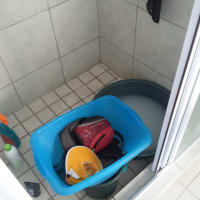
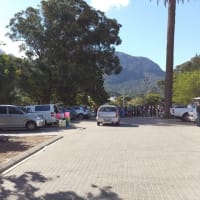
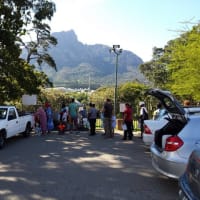
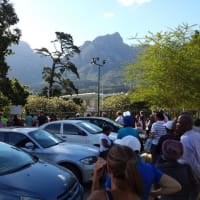
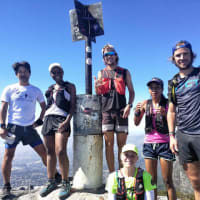

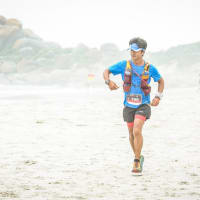
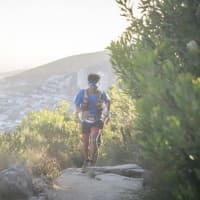


※コメント投稿者のブログIDはブログ作成者のみに通知されます